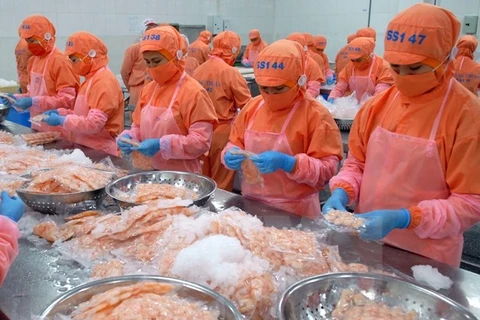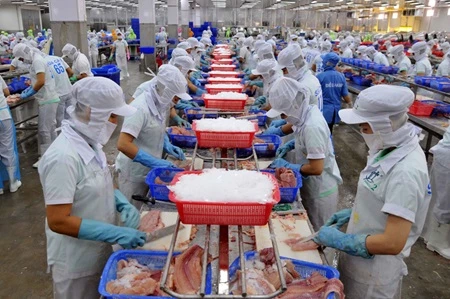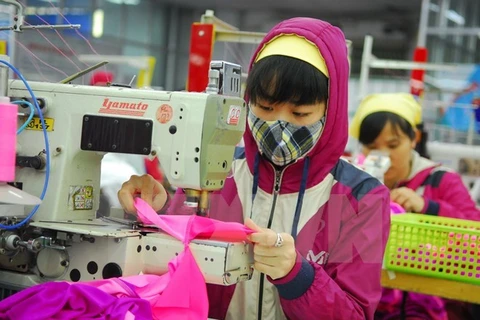Hanoi (VNA) – Stronger connectivity in the industrial sector are vital for optimising opportunities created by the Trans-Pacific Partnership (TPP), said participants at a forum in Hanoi on March 1.
Vice Chairman of the Vietnam Steel Association Nguyen Van Sua pointed out that a majority of industrial manufacturing companies are small-and medium-sized and lack financial strength, high technology and management experience.
As Vietnam will soon fully integrate into the TPP region, which is a vast market with stringent rules on origin and quality, businesses themselves must improve their product quality and establish connections to form a strong community able to compete with foreign rivals, he said.
He also asked authorised agencies to assist domestic enterprises by giving support relating to trade remedies and quality control regulations, and providing detailed information about TPP member nations.
The Ministry of Industry and Trade’s Heavy Industry Department also urged for close coordination between State agencies and businesses to expand operation and export and minimise adverse impacts of market opening.
State agencies need to assess the TPP’s possible impacts on local goods, investment and services areas so as to fine-tune policies designed for TPP-benefiting industries.
Meanwhile, companies should also acquire an in-depth knowledge of free trade agreements to grasp opportunities, the department added.
Deputy Minister of Industry and Trade Tran Quoc Khanh warned that many small industrial players will be out of the TPP game and urged them to promote their personnel’s capacity and adapt their operation plans to the TPP.
TPP is a free trade agreement between 12 countries - Australia, Brunei, Canada, Chile, Japan, Malaysia, Mexico, New Zealand, Peru, Singapore, the United States and Vietnam. It aims to break down trade and investment barriers between these countries of 800 million people, which constitute 30 percent of global trade and about 40 percent of the world’s economy.
It was signed by economic ministers from the member nations in New Zealand on February 4.
The pact will now undergo a two-year ratification period in which at least six countries - that account for 85 percent of the 12 nations’ combined gross domestic production - must approve the final text for the deal to be implemented.-VNA
























